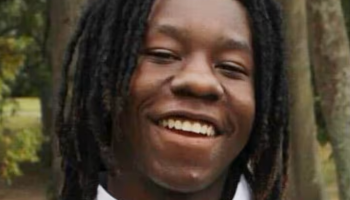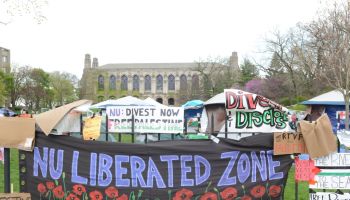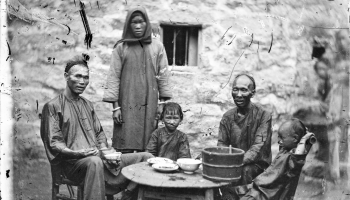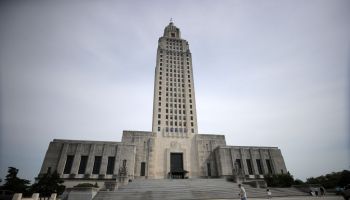It’s always interesting talking to American youth, especially African-Americans, who are quick to suggest that the “old ways of doing things” — like marches, rallies, protests and boycotts — have no effect on changing public policy today.
Maybe someone should tell that to the people in Egypt, who brought the 30-year regime of Hosni Mubarak to its knees and forced him to resign over the course of 18 days.
While Mubarak tried desperately to hold onto his powers, the millions of Egyptians, led by the nation’s disgruntled young, made it clear that waiting for him to not seek re-election in September wasn’t enough; they wanted him gone. Today.
Their ability to remain unified reminded me of “the fierce urgency of now,” often proclaimed by Dr. Martin Luther King Jr. When the people want freedom, asking them to wait is a waste of time. What did Dr. King title his letters from a Birmingham, Ala., jail? “Why We Can’t Wait.”
As the developments in Egypt were covered each day, it was eerily similar to that of the Civil Rights Movement. The spark in North Africa began with a Tunisian farmer setting himself on fire to protest police trying to extort money from him. In 1955, the fire burning inside African-Americans was lit by the brutal murder of Emmett Till.
In Egypt, the nation’s youth used Facebook, Twitter and Flickr to get their message out and to show the world that they were unwilling to continue to live in a state of oppression. During the Civil Rights Movement, long before Time, Newsweek and The New York Times showed up, the Chicago Defender, Memphis Tri-State Defender and a host of other black newspapers were the outlet used by leaders to get their message to the masses — as chronicled by Gene Roberts and Hank Kilbanoff in “The Race Beat: The Press, the Civil Rights Struggle, and the Awakening of a Nation.”
One of the galvanizing forces in Egypt was 30-year-old Wael Ghonim, a Google marketing executive. His arrest, and subsequent release, rallied the people even more.
We can’t forget the arrests of a 26-year-old preacher in Montgomery, Ala., and other cities that put the attention on the oppressive nature of Jim Crow all across the South, galvanizing his supporters. That man was Martin Luther King Jr.
His insistence of following a nonviolent path to changing America was seen and felt all across Egypt. Knowing full well that they would not have the sympathy of the world if they chose to take up arms against their oppressors, the Egyptian protestors maintained their commitment to civil disobedience. And just like when Bull Connor and angry mobs showed their violent ways against fellow Americans, the world seethed with anger as pro-Mubarak supporters killed protestors and the secret police were unleashed with fury. The people in Egypt were just as brave and fearless as the people in Selma, Ala., and Little Rock, Ark.
During the Egyptian crisis, even the reaction from today’s American political leaders was similar to the lack of forthrightness during the Civil Right Movement. Instead of being unequivocal in standing for full freedom for all Egyptians, political leaders hedged their bets, trying to protect their interests and not those of the people demanding a change.
While many feared for what America would look like when Jim Crow was crushed, too many fear what will happen in Egypt in a post-Mubarak world. It is abundantly clear that those demanding freedom will not accept anything less. They want free and fair elections; they want the government to care more about the poor and disenfranchised, not just the well-to-do.
Martin Luther King Jr., Ella Baker, Whitney Young, Roy Wilkins, Dorothy Height, A. Philip Randolph, Fannie Lou Hamer, Fred Shuttlesworth and countless others didn’t settle for some freedom; they demanded full access to democracy.
And I have no doubt that the people of Egypt will not stop protesting and rallying and mobilizing and organizing until their dreams of democracy become a reality.
Roland S. Martin is an award-winning CNN analyst and the author of the book “The First: President Barack Obama’s Road to the White House as originally reported by Roland S. Martin.” Please visit his website at www.RolandSMartin.com. To find out more about Roland S. Martin and read his past columns, visit the Creators Syndicate Web page at www.creators.com.
COPYRIGHT 2011 CREATORS.COM
























